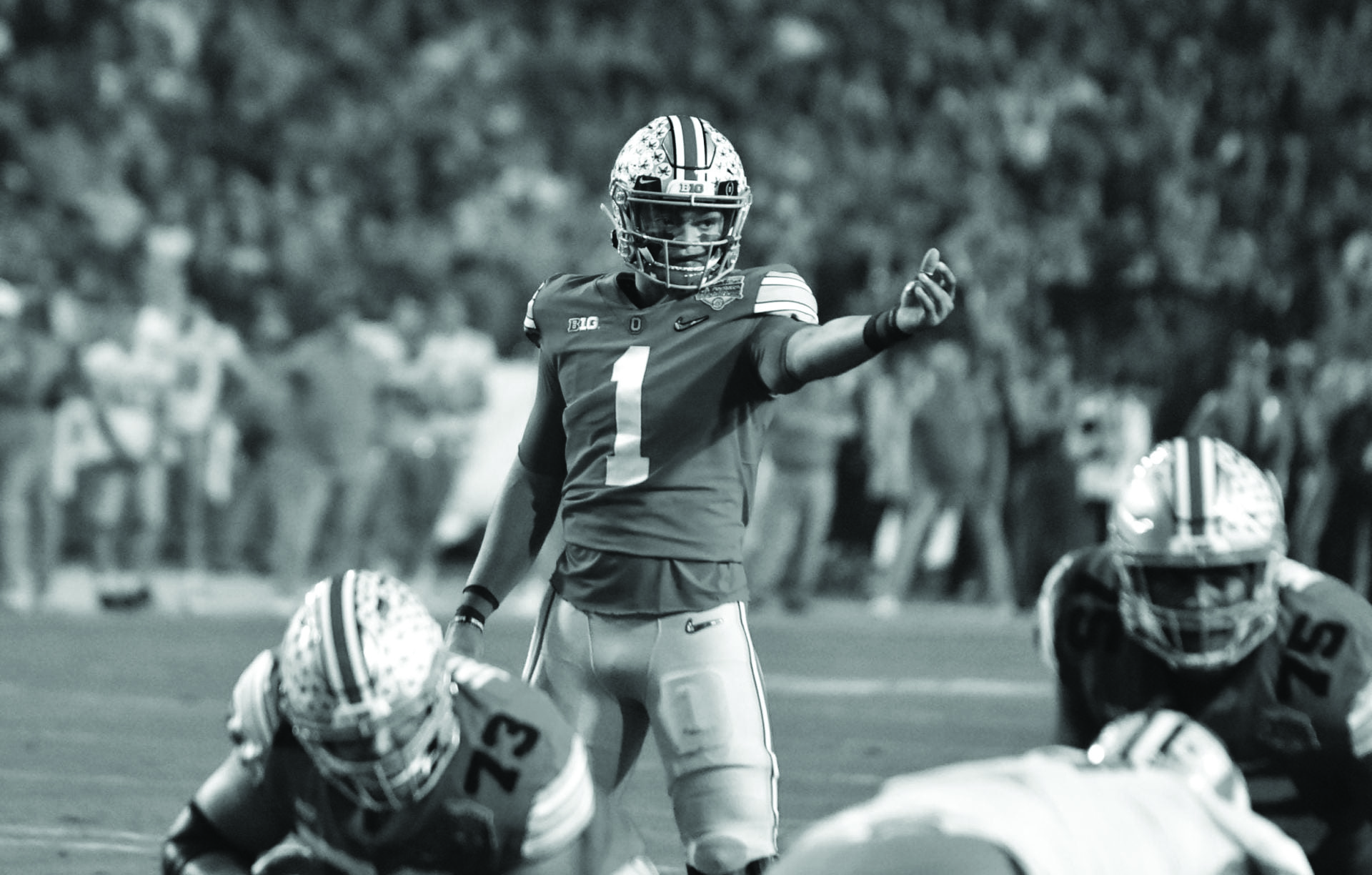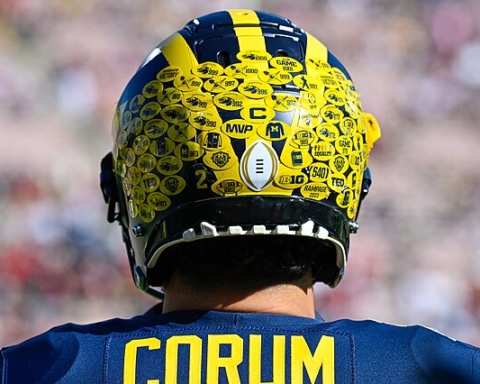By Max McAuliff, Opinion Editor
After a tumultuous summer for collegiate sports, The Big Ten announced on Aug. 11 it would be cancelling its Fall 2020 football season due to COVID-19. This decision was at first met with awe. It appeared that any chance of a college football season happening disappeared in a matter of days. While the Pac-12 shortly followed suit the ACC, SEC and Big 12 did not. Although these three conferences did not cancel their seasons, the Big Ten should have stuck to their initial decision to not have a season.
As the 2020 college football season begins to kick-off, there will be a large part of the puzzle missing as teams vie for a spot in the College Football Playoff. The Big Ten, who is home to contenders like Ohio State, Michigan and Penn State will not begin their chase for a College Football Playoff spot until Oct. 23rd.
When the Big Ten canceled their season in August, it looked as if the other Power Five conferences (ACC, SEC, Big 12 and Pac-12) would most likely follow suit. The Big Ten was likely surprised as the Pac-12 was the only conference who also canceled their season. As the days went on and it looked unlikely that other conferences would also cancel their seasons, the Big Ten began to backtrack and rethink cancelling the 2020 football season. This backtracking culminated in the Big Ten announcing Wednesday that they would be holding a football season in 2020.
The outcry from players had a major impact on the Big Ten rethinking the cancellation of the season. Ohio State quarterback and potential Heisman Trophy winner Justin Fields had been very vocal since before the cancellation of the season that he and his teammates wanted to play football this fall. He is one of many players to adopt the hashtag #wewanttoplay in hopes of spreading their message on social media. Other players, including Clemson’s Trevor Lawrence, have used the hashtag as well in hopes of establishing universally mandated health and safety procedures along with other guarantees protecting players.
The Big Ten returning now however is foolish. According to the Big Ten’s plan, the eight-game season will culminate with the Big Ten Championship being held on Dec. 19. That is one day before the College Football Playoff committee seeds teams for the playoff. While this is not ideal, it’s what must be done if the Big Ten hopes to have a team or two in the College Football Playoff.
The potential harm to be done by the Big Ten starting their season in October is too great a risk. If they had never canceled their season in August and started around the time the ACC, SEC and Big 12 are, then that would be a different story.
The NCAA, the governing body of collegiate athletics, should have ultimately stepped in and said yay or nay to a football season this year. The decision should never have been left up to individual conferences. The NCAA should have done something to help guide the conferences in establishing safety protocols and testing as opposed to sitting on the sidelines and doing nothing. That however is a topic for a different time.
At the end of the day, The Big Ten should not have announced a return to play this season. While it is a difficult decision to make, especially with athletes’ careers on the line, it is the right one. To stop the spread of COVID-19 sacrifices must be made, and the Big Ten football season should have been one of them.









